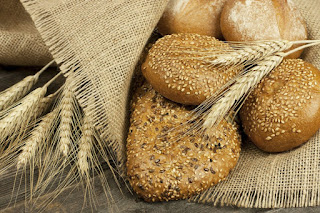We all know about the everyday power of scent: how a particular perfume reminds you of your mother, or when the smell of your favorite restaurant brings you back to your first date there. But did you know that some scents can actually improve your health? Essential oils can also help you relax or sleep, or improve your skin or digestion — their benefits go well beyond a pleasant smell.
"Essential oils can have a healing effect mentally, physically, and emotionally,” said Brianna Scarpelli, a marketer and expert on essential oils with Young Living Essential Oils. -The Huffington Post
The Huffington Post created a list with the oils below will help you assemble a natural first-aid kit for a variety of common minor ailments.
Tea Tree: Distilled from the Australian plant Melaleuca alternifloria, tea tree is one of the oils that can be used topically -- good news, because it's great for treating skin problems like fungus and blemishes. You can dab it on acne blemishes with a cotton swab to help clear your skin, or apply it to skin fungal infections like athlete's foot. It's also found in many skin care products.
Lavender: "Lavender is one of the most versatile oils,” Scarpelli said. "It is more commonly known for its relaxing effects but works on bruises, cuts, and skin irritation too.” Dr. Oz says that the scent of lavender can reduce the levels of stress hormones in your blood. That’s a good reason to put a few drops in your bath in order to help you relax at night. Scarpelli recommends putting a couple of drops of the oil on your hands, rubbing them together and inhaling, then sprinkle a few more on your pillow before you hop in bed.
Peppermint: "Peppermint purifies and stimulates the mind. It also can increase mental alertness,” Scarpelli advised. "Dr. William N. Denver of the University of Cinncinati found that inhaling peppermint oil increased mental accuracy by 28 percent.” Peppermint oil is also one of just a handful of oils that can be taken internally, which is fortunate because it’s a great recipe to help indigestion — just mix a few drops in water and drink.
Frankincense: Nina Nelson of the blog Shalom Mama says that frankincense is a must-have essential oil in her home. She uses it both for relaxation, such as in baths, and to help minor cuts and bug bites heal more quickly. "Frankincense has been used for thousands of years,” Scarpelli said. "It can be used for depression, inflammation, immunity, and to increase spiritual awareness."
Oregano: You may have heard of oil of oregano as a flu fighter. This strong-tasting oil has naturally antibacterial qualities, which is why many think it can help to fight colds and other sicknesses. It is taken topically, often by putting a few drops on the tongue — the taste isn't pleasant but many people swear by it during flu season.
Lemon: "Lemon oil can be used not only to detox the body but it can also help with acne,” Scarpelli said. If you want a healthy boost in alertness, a bit of lemon oil mixed 50:50 with a carrier is a great way to give your head a lift. Because of its uplifiting properties, lemon essential oil is also good for increasing focus and concentration. As a bonus, it can help keep fleas away when used on your pets.
Grapefruit: Another citrus oil, grapefruit essential oil has properties similar to lemon oil. It's a great choice for people experiencing fatigue and it can help you deal with the effects of jet lag. It's also a natural antiseptic so you can add it to your homemade household cleansers to keep your home safe and clean.
Eucalyptus: This is a great oil to have on hand if you get frequent colds or suffer from allergies that affect your breathing and make you congested. "Eucalyptus can be used to relieve sore muscles and help clear sinuses,” Scarpelli said. "It also has many antibacterial properties and has been known to stimulate the immune system." Use it in a vaporizer to loosen up a congested chest or apply it diluted to the inside of your nose to relieve nasal congestion. But never ingest it or use it on your skin undiluted, as it can be irritating.
Click HERE to shop for more essential oils!






